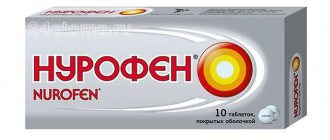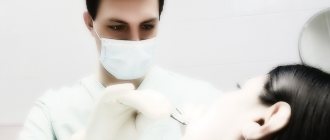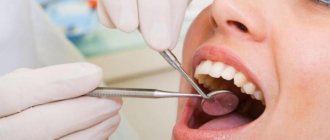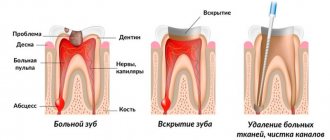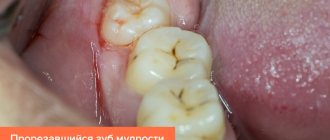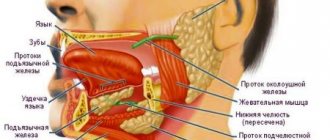Sometimes, after dental treatment, patients go to the dental clinic with a complaint of pain, not knowing that pain after some dental procedures is a normal phenomenon, and only in rare cases does it serve as a warning sign.
What causes pain after dental treatment and what to do in this situation?
Pain after caries treatment
Shallow caries
- After treatment of shallow caries, patients sometimes feel mild pain for several hours; in rare cases, pain can persist for 1-2 weeks. Unpleasant sensations may be aggravated by exposure to cold or hot food, or when biting or pressing on a tooth. The reason is as follows.
After removing the affected tissue from the carious cavity, its walls are treated with a special composition that improves the adhesion of the filling to the tooth. Before applying this composition, the cavity must be dried to a certain extent. If overdrying occurs, the nerve endings in the surface layer of dentin are irritated, which leads to pain. Over time, the dry tissues receive the necessary moisture from the tooth, and the pain disappears.
- The second reason for the occurrence of pain after treatment of superficial caries is the placement of a filling in the cervical part of the tooth, as a result of which the gums or interdental papilla are injured during the dentist’s work. Characterized by a nagging pain, slightly increasing when biting and exposure to cold food. Within a few days, the injured tissues heal, the pain disappears without a trace.
Deep caries
- After treatment of deep caries, pain may occur after the anesthesia wears off (an hour or two after treatment); if a piece of hard food gets on the tooth or if you run a toothpick over the filling. The tooth may also react to cold food: a mild pain occurs that disappears within a few seconds after the irritant ceases.
This is a normal phenomenon and is explained by the fact that the carious cavity was located close to the nerve fibers inside the tooth, and pressure is transmitted to them through the placed filling material. Gradually, the pain decreases and disappears, as a protective layer of dentin forms above the pulp, which separates it from the filling. This is a long process, so discomfort may persist for several months.
- Another reason for pain after tooth treatment may be overheating. This problem is relevant in clinics (usually budget ones) that are not sufficiently equipped with modern equipment, when the area of the tooth is not properly cooled during treatment with a drill. Because of this, hard tissues overheat, which leads to burns of the pulp and pain under the filling.
Means for relieving discomfort
It is advisable to endure moderate pain if it lasts no more than three days. During this period, damaged tissues and nerve endings will be restored, which will help eliminate discomfort.
But sometimes it is not possible to do without the use of painkillers.
A qualified examination will provide the basis for prescribing an adequate course of treatment using anti-inflammatory and analgesic medications.
Based on the results of the examination, the dentist may recommend a toothpaste that reduces enamel sensitivity.
Pain after pulpitis treatment
When treating pulpitis, the nerve is removed and the canals are cleaned. This is a complex procedure during which special instruments are inserted into the root canals, which can injure tissue near the apex of the root. When treating canals, powerful antiseptics are used, which sometimes irritate nearby tissues. Therefore, after the end of anesthesia, patients almost always feel pain of varying intensity.
When the canal filling procedure is carried out correctly, the pain goes away within 1-7 days, gradually subsiding until it disappears completely.
Allergy
This complication of pulpitis treatment is easier to differentiate - an allergic reaction is often accompanied by tissue swelling. If it is a consequence of material moving outside the root canal, there may be swelling of the gums around the treated tooth. In some cases, it spreads to other areas - cheek, lip, depending on the specific tooth.
When pressure is applied, the pain becomes stronger, it is difficult to relieve with painkillers, and over time it only intensifies.
Pain after periodontitis treatment
The peculiarity of periodontitis is that it often develops asymptomatically, so the tooth may not bother you before treatment, and only after a visit to the dentist begins to hurt. The doctor is not at fault here; the pain that arises is explained by the complexity of the pathological process.
With periodontitis, pathogenic microorganisms move freely from the oral cavity to the root of the tooth, gradually accumulating in the bone tissue around it. After treatment, when the canals are filled, access to the tooth root for bacteria is blocked, the source of infection is localized, and the bacteria remaining in the bone tissue are neutralized by the body’s immune system. If the course of the disease is favorable, pain disappears within two months after treatment.
With weak immunity or other individual characteristics of the body, an inflammatory process occurs. Patients feel aching pain, throbbing, pain when biting and pressing on the tooth. If you experience complaints after periodontitis treatment, you should immediately see a doctor, as additional treatment may be needed.
Relief from pain
If this symptom bothers you greatly or is accompanied by edema or swelling, then contact your dentist. Experienced doctors at the Aurora Star clinic will quickly identify the cause of pain and make every effort to eliminate it. Sometimes this requires simply filling the tooth again (for example, if it was underfilled or overfilled). If complications occur, such as periodontitis, then surgical treatment will be required - an incision to remove pus.
Sometimes pain is a natural phenomenon after treatment for dental diseases. But everyone has their own pain threshold. If this symptom bothers you greatly, your doctor will help you choose the appropriate painkillers. At the Aurora Star clinic you can get rid of the consequences of poor-quality dental treatment, and at the same time, pain. Experienced dentists, modern equipment and a pleasant pricing policy await you.
Other causes of tooth pain after treatment
Pain from an overbite filling
After installing the filling, the dentist polishes it along the bite, but only the patient can tell when biting whether it bothers him or not. Because dental treatment is often performed under anesthesia, numbness in the mouth makes it difficult to determine the height of the filling. After the anesthetic wears off, pain appears when biting when the opposite tooth presses on the over-inflated filling, and it puts pressure on the pulp.
There is a widespread belief that the filling will wear out over time and there is no need to bother the doctor again to correct it. This is wrong, since modern filling materials are incredibly durable and will take years to wear out. Due to malocclusion, patients will experience constant pain and discomfort; over time, the surrounding tooth tissue may become inflamed, which will lead to the need for repeated treatment. The filling grinding procedure is absolutely painless, so don’t delay your visit to the dentist.
Allergy
In rare cases, dental allergies occur - the body’s reaction to an installed filling. Allergic symptoms in the first days after visiting the dentist resemble signs of an inflammatory process: constant pain in the area of the treated tooth, swelling and redness of the gums. Local manifestations of allergies may be accompanied by general symptoms, such as skin rash or itching.
It is impossible to cure an allergy to filling material on your own; if the diagnosis is confirmed, the dentist will replace the installed filling with a less allergenic one.
Preventive measures
In order not to provoke pain after installing a filling, you must adhere to the following rules:
- Avoid eating sweets, hot and cold foods;
- reduce the load on the treated tooth, avoiding the possibility of damage to the filling in the process of chewing solid food;
- Avoid chewing gum and a toothbrush with stiff bristles.
All measures are temporary and simple, but following them will prevent possible complications.
Timely treatment of a diseased tooth and seeking help in case of pain after surgery is the basis for the successful completion of dental filling.
How can you relieve toothache after treatment?
After dental treatment, you need to follow these recommendations:
- Do not drink drinks that are too hot or cold, and food should also be at medium temperature.
- At first, do not chew with a filled tooth.
- Until the pain disappears, eat soft food or grind it so that a hard piece does not accidentally fall on the treated tooth.
- For increasing pain, you can take anti-inflammatory drugs: ibuprofen (Nurofen, MIG 400), ketorolac (Ketanov), nimesulide (Nimesil, Affida Fort).
- If the gums are inflamed, rinse your mouth with a warm infusion of chamomile, a soda-salt solution (one teaspoon of table salt and baking soda per glass of water).
- If threatening symptoms occur, you should consult a doctor.
How to prevent pain and complications
Regardless of the field of medicine, doctors agree with a simple statement - it is much easier to prevent complications from developing at all than to treat them. There are a few simple recommendations that you should follow:
- Pay close attention to who is performing the operation on you. In our clinic, the task is performed by experienced surgeons who are well aware of all the features of the process. This ensures that mistakes are eliminated - the canal is filled correctly, and there are no fragments or dental instruments left inside.
- If you have previously had an allergy to any analgesics or anti-inflammatory drugs, tell your doctor.
- Don't put off visiting your doctor. The longer you leave a tooth untreated, the greater the risk of numerous potential complications.
- Ask how long the tooth hurts after root canal cleaning in your specific case. The doctor can make a prognosis based on information about the health status of a particular patient.
Also remember that if after cleaning the canals you have any signs of inflammation, you need to see a doctor as soon as possible. It is strictly forbidden to use self-medication, drugs without recommendation, or folk remedies. All this can only make the situation worse.
Threatening symptoms
Sometimes, due to various factors, pain does not go away after dental treatment; other symptoms are added to them, which serves as a signal to contact your doctor. You need to see a dentist immediately if:
- body temperature rises;
- acute sharp pain appeared;
- swelling of the tissue around the tooth has developed;
- it is very painful to close your jaws;
- swollen cheek;
- the tooth reacts sharply to hot, cold, sweet or sour foods;
- toothache worsens at night;
- severe pain lasts more than a week after treatment of pulpitis and shallow caries, more than a month after treatment of periodontitis and deep caries.
To understand what the problem is, the doctor will examine the tooth and prescribe additional studies: x-ray diagnostics and electroodontic diagnostics (EDD). An X-ray will show the condition of the tooth roots and the quality of canal filling; EDI will allow you to assess the condition of the pulp. Based on the results of the examination, the dentist will prescribe appropriate treatment.
When do you need to see a doctor urgently?
Acute, throbbing pain after dental treatment, deterioration in general health and an increase in body temperature are a signal for immediate medical attention. The appearance of purulent discharge, severe swelling of the gum mucosa, or various sensitivity disorders in the oral cavity require a thorough examination by a dentist. You should also consult with a specialist if mild, aching pain bothers you for a long time after treatment or occurs when exposed to any provoking factor.

